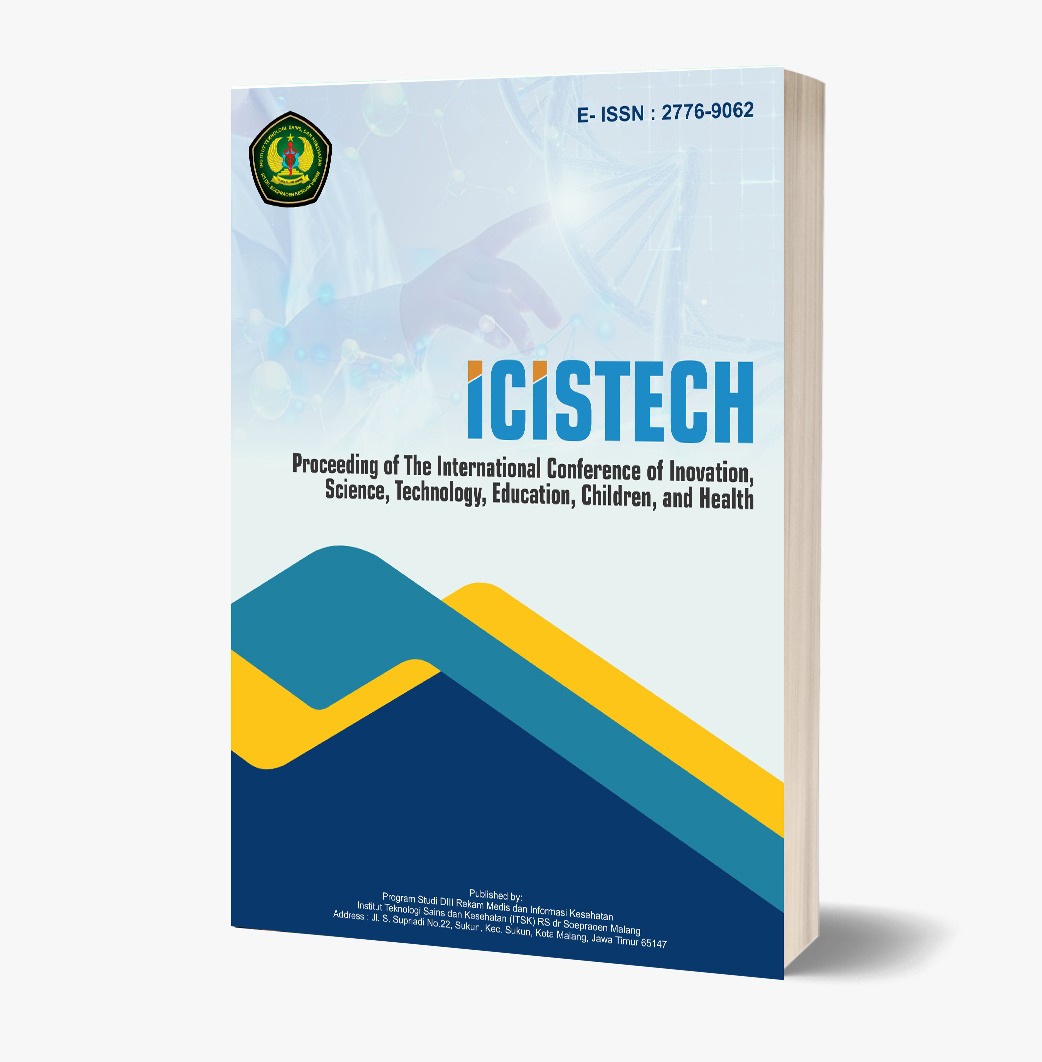ChatGPT and Critical Digital Pedagogy: Examining the Potential and Challenges for Educational Practice
DOI:
https://doi.org/10.62951/icistech.v4i1.80Keywords:
ChatGPT, Critical Digital Pedagogy, Dialogue, Empowerment, Social JusticeAbstract
The infusion of technology in teaching and learning has opened up new ways to engage and educate and stimulated discussions over its role in perpetuating social divides while creating uneven distributions of power. In doing so, this study provides a theoretical lens on the potential ways in which ChatGPT and critical digital pedagogy intersect around technology affordances to support community-engaged, critically oriented teaching practice. Grounded in critical pedagogy and a theoretical framework informed by the basic tenets of ChatGPT, this research seeks to explore how it addresses issues that underpin critically oriented digital teaching practices rooted in dialogue & empowerment, and social justice. This scholarly contribution addresses an existing gap in the literature by exploring the interplay between ChatGPT and critical digital pedagogy, providing discerning contemplations on how technology can stimulate more engaged, vital, and socially equitable educational modalities. Drawing on previous research and methodologies, the present study unpacks associations between ChatGPT and critical digital pedagogy. Key findings from this exploration show ChatGPT as an essential benefit of reflection practices for empowerment and justice in the digital learning area. The implications of these findings are substantial for educators, researchers and policymakers wishing to foster more equitable educational practices in the digital age.
References
Adeshola, I., & Adepoju, A. P. (2023). The opportunities and challenges of ChatGPT in education. Interactive Learning Environments, 31(1), 1-14. https://doi.org/10.1080/10494820.2023.2221234
Almarzouqi, A., Aburayya, A., Alfaisal, R., Elbadawi, M. A., & Salloum, S. A. (2024). Ethical implications of using ChatGPT in educational environments: A comprehensive review. In Artificial Intelligence in Education: The Power and Dangers of ChatGPT in the Classroom (pp. 185-199). https://doi.org/10.1007/978-3-030-76025-7_11
Bahroun, Z., Anane, C., Ahmed, V., & Zacca, A. (2023). Transforming education: A comprehensive review of generative artificial intelligence in educational settings through bibliometric and content analysis. Sustainability, 15(17), 12983. https://doi.org/10.3390/su151712983
Baskara, F. X. R. (2023). AI-driven dynamics: ChatGPT transforming ELT teacher-student interactions. Lensa: Kajian Kebahasaan, Kesusastraan, dan Budaya, 13(2), 261-275. https://doi.org/10.12345/lensa.v13i2.123
Bayne, S. (2015). Teacherbot: Interventions in automated teaching. Teaching in Higher Education, 20(4), 455-467. https://doi.org/10.1080/13562517.2015.1029891
Chiu, T. K. (2024). Future research recommendations for transforming higher education with generative AI. Computers and Education: Artificial Intelligence, 6, 100197. https://doi.org/10.1016/j.caeai.2024.100197
Conference Papers and Reports:
Dempere, J., Modugu, K., Hesham, A., & Ramasamy, L. K. (2023). The impact of ChatGPT on higher education. In Frontiers in Education, 8, 1206936. https://doi.org/10.3389/feduc.2023.1206936
Freire, P. (1970). Pedagogy of the oppressed. Continuum.
Giroux, H. A. (2011). On critical pedagogy. Continuum.
hooks, b. (1994). Teaching to transgress: Education as the practice of freedom. Routledge.
Huallpa, J. J. (2023). Exploring the ethical considerations of using ChatGPT in university education. Periodicals of Engineering and Natural Sciences, 11(4), 105-115. https://doi.org/10.11591/pen.v11i4.24616
Imran, M., & Almusharraf, N. (2023). Analyzing the role of ChatGPT as a writing assistant at higher education level: A systematic review of the literature. Contemporary Educational Technology, 15(4), ep464. https://doi.org/10.30935/cedtech/12074
Limo, F. A. F., Tiza, D. R. H., Roque, M. M., Herrera, E. E., Murillo, J. P. M., Huallpa, J. J., ... & Gonzáles, J. L. A. (2023). Personalized tutoring: ChatGPT as a virtual tutor for personalised learning experiences. Przestrzeń Społeczna (Social Space), 23(1), 293-312. https://doi.org/10.12797/ps.23.2023.01.22
Lo, C. K. (2023). What is the impact of ChatGPT on education? A rapid review of the literature. Education Sciences, 13(4), 410. https://doi.org/10.3390/educsci13040410
Masood, M. M., & Haque, M. M. (2021). From critical pedagogy to critical digital pedagogy: A prospective model for the EFL classrooms. Saudi Journal of Language Studies, 1(1), 67-80. https://doi.org/10.2139/ssrn.3748967
Noble, S. U. (2018). Algorithms of oppression: How search engines reinforce racism. NYU Press.
OpenAI. (n.d.). ChatGPT: Optimizing language models for dialogue. Retrieved from https://openai.com/blog/chatgpt/
Other Sources:
Rahman, M. M., & Watanobe, Y. (2023). ChatGPT for education and research: Opportunities, threats, and strategies. Applied Sciences, 13(9), 5783. https://doi.org/10.3390/app13095783
Reich, J., & Ito, M. (2017). From good intentions to real outcomes: Equity by design in learning technologies. Digital Media and Learning Research Hub. Irvine.
Sclater, N., Peasgood, A., & Mullan, J. (2016). Learning analytics in higher education. Jisc.
Selwyn, N. (2014). Distrusting educational technology: Critical questions for changing times. Routledge.
Selwyn, N. (2019). Should robots replace teachers? AI and the future of education. Polity.
Shanto, S. S., Ahmed, Z., & Jony, A. I. (2024). Enriching learning process with generative AI: A proposed framework to cultivate critical thinking in higher education using Chat GPT. Tuijin Jishu/Journal of Propulsion Technology, 45(1), 3019-3029. https://doi.org/10.12783/1001-0020/2024/45/3019
Stommel, J. (2014). Critical digital pedagogy: A definition. Hybrid Pedagogy. Retrieved from http://www.digitalpedagogylab.com/hybridped/critical-digital-pedagogy-definition/
These references are formatted according to the APA style guidelines. Make sure to adjust the URLs and DOIs to fit your actual sources if needed.
Yim, I. H. Y., & Su, J. (2024). Artificial intelligence (AI) learning tools in K-12 education: A scoping review. Journal of Computers in Education, 1-39. https://doi.org/10.1007/s42438-024-0012-8
Zawacki-Richter, O., Marín, V. I., Bond, M., & Gouverneur, F. (2019). Systematic review of research on artificial intelligence applications in higher education – where are the educators? International Journal of Educational Technology in Higher Education, 16(1), 39. https://doi.org/10.1186/s41239-019-0172-8
Downloads
Published
How to Cite
Issue
Section
License
Copyright (c) 2024 Proceeding of The International Conference of Inovation, Science, Technology, Education, Children, and Health

This work is licensed under a Creative Commons Attribution-ShareAlike 4.0 International License.













